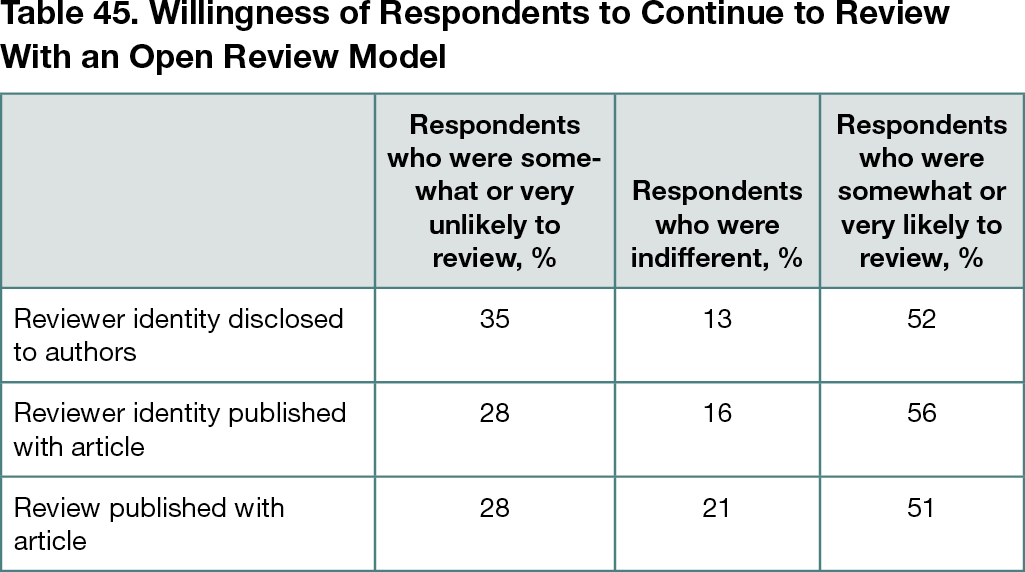Abstract
A Survey of Reviewers’ Perspectives on Options for Open and Transparent Peer Review at Annals of Internal Medicine
Jill Jackson,1 Christine Laine,1 Julie Kostelnik1
Objective
In open transparent peer review, the authors and reviewers know each other’s identities, and published articles are accompanied by the signed reviewer comments. Annals of Internal Medicine (Annals) uses single-blind review—reviewers know authors’ identities, but reviewers’ identities are not disclosed to authors and reviews are not published. The objective of this survey was to examine whether moving to more open peer review could affect the willingness of Annals peer reviewers to review for the journal or the nature of their comments.
Design
The authors conducted an online survey of 5977 persons who reviewed for the journal from January 1, 2019, to January 1, 2022. In addition to information on age, specialty, and professional setting and experience, the survey asked how likely (on a 5-point scale) respondents would be to continue to review for Annals if they were asked to sign their comments for authors, if the published article identified the reviewers, and if the reviews accompanied published articles. In addition, the survey asked whether and how open review would influence the nature of their comments.
Results
Of 1421 respondents (24% response rate), 71% were more than 10 years past completing training, 48% reported being researchers or clinician researchers, 61% peer reviewed at least 5 times in a typical year, and 66% had authored more than 20 peer-reviewed publications. Approximately one-third reported that they would be unlikely to review if Annals adopted an open review policy (Table 45). Whereas 42% reported that this model would not affect their comments, 10% reported that their reviews would be less detailed and 28% reported that their reviews would be less critical. However, 17% reported that their comments would be more detailed, 3% would be more critical of the article, and 20% responded with personal answers to the question.
Conclusions
An open review model could adversely affect the willingness of current Annals peer reviewers to continue to review and could alter the nature of reviewer comments.
1Annals of Internal Medicine, American College of Physicians, Philadelphia, PA, USA, jjackson@acponline.org
Conflict of Interest Disclosures
Christine Laine is a member of the Peer Review Congress advisory board but was not involved in the review or decision of this abstract. No other disclosures reported.

